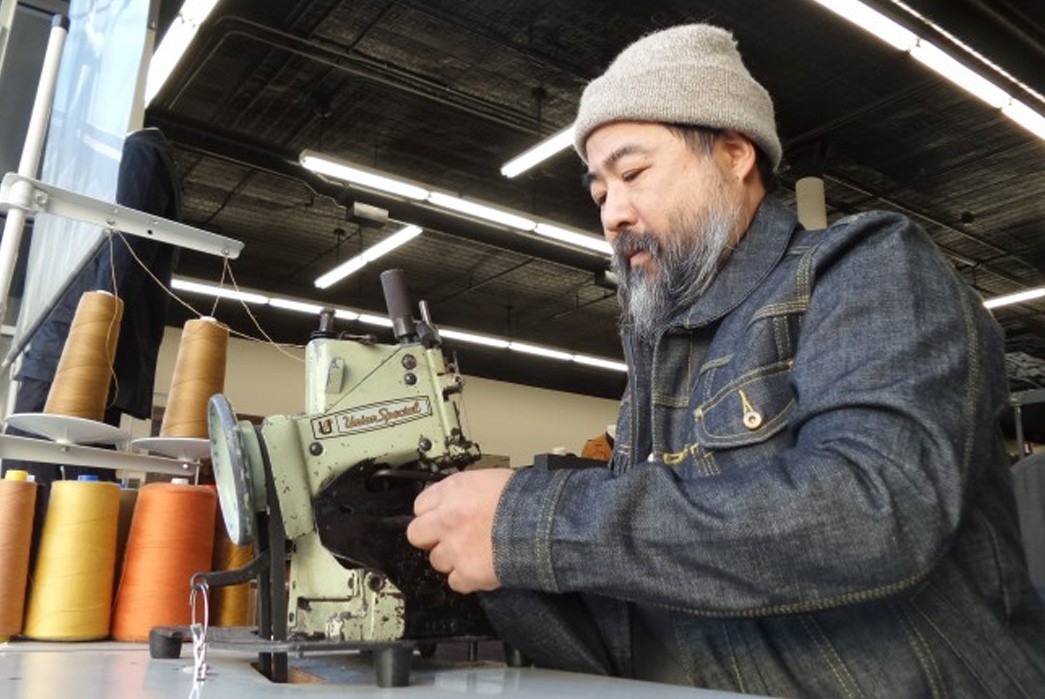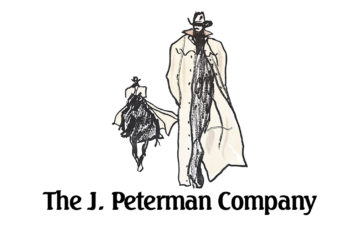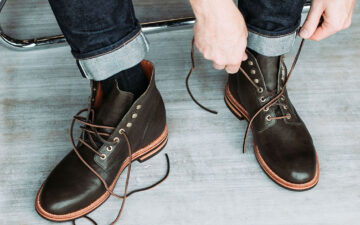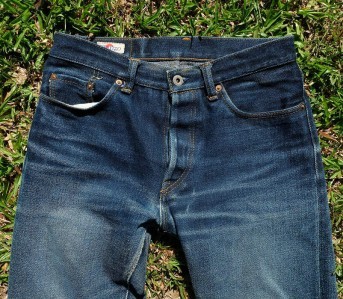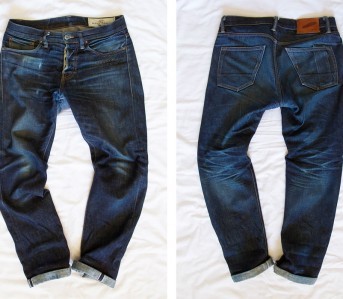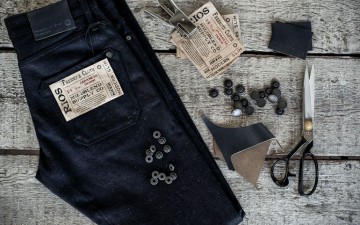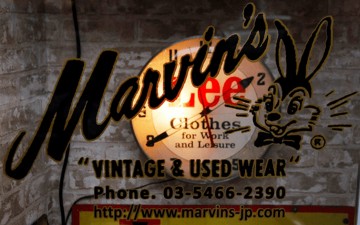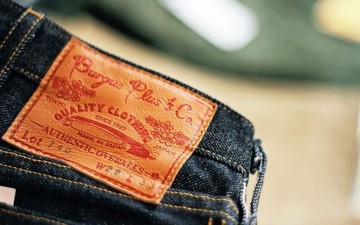Today we’re talking to Luke Cho, the man behind the curtain (and the Union Special) at Mildblend Supply Co. in Chicago. Since opening in 2011, Mildblend has quickly become an anchor in Chicago’s robust, competitive menswear scene, and in particular has become the place to go for denim.
No other store in the city rivals the selection of brands at Mildblend: 3sixteen, Nudie, Railcar Fine Goods, Pure Blue Japan, Freenote Cloth, Rogue Territory, Naked & Famous, Motomaro, Sugar Cane, Eat Dust, Burgus-Plus … you get the idea. Whereas many shops channeling denim/heritage/Japanese/repro aesthetics go the boutique route, with small footprints and focused collections, walking into Mildblend brings to mind a small department store.
In addition to the almost-overwhelming denim selection, the shop also stocks an impressive array of boots, jackets, shirts, bags, leather goods and grooming products, as well as ladies-wear. It’s a serious outfitter situation – an REI for raw – and it’s easy to walk out with new duds head-to-toe.
Luke, when not wrangling invoices in the back office or chatting with customers about the particulars of a pair of jeans, can often be found in the front corner amidst stacks of denim and spools of thread, executing expert repairs and chain stitch hemming. With his low-key personality and straightforward style, you might not guess that Cho has had a colorful past in the fashion industry.
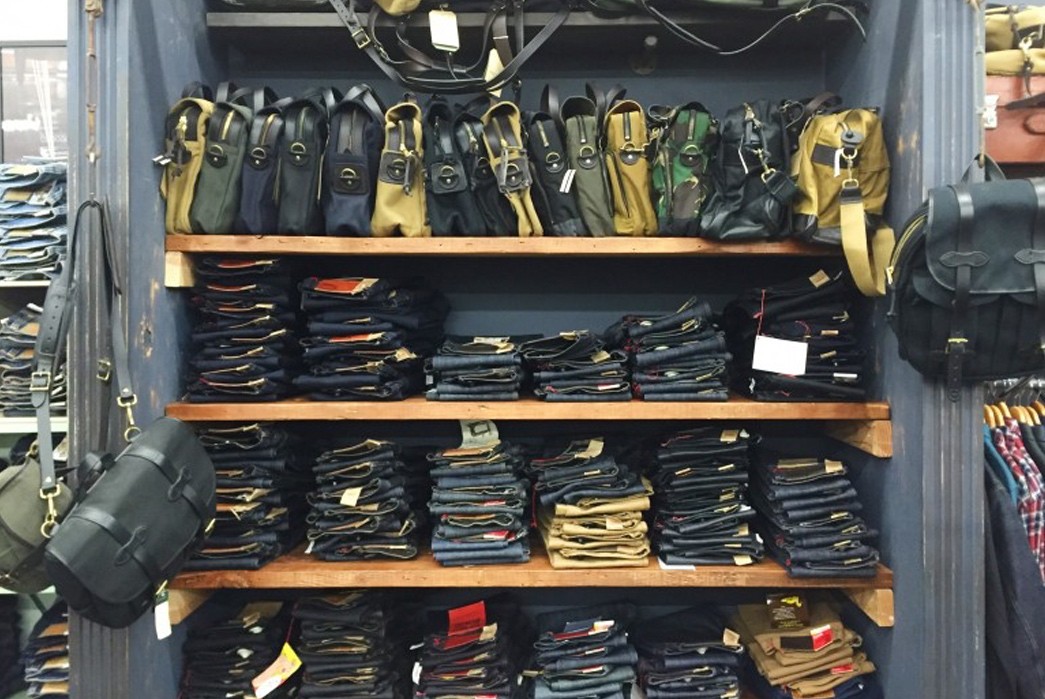
The story behind Mildblend starts way before 2011. Cho has been in the fashion industry since graduating from college 1989. After studying fine art and communications (and meeting his wife and business partner Candise) at the University of Illinois at Chicago, Cho launched Black Moon – essentially a ready made couture brand.
Cho, along with a designer and two sewers, produced only four items of any piece. The label’s contemporary menswear aesthetic appealed to local celebrities and TV personalities who needed a bevy of unique outfits without the usual couture price tags.
Predating the current trend of upcycling, Cho says, “We shopped for designer remnants and worked backwards. The material informed what we made.” The team found that such small product runs were creatively demanding, especially without formal design training or computer programs. Despite their cost-conscious upcycling efforts, the endeavor was ultimately too small and too labor-intensive to justify. Black Moon shuttered in 1994, and Cho soon opened a more traditional retail space, Untitled.
Untitled focused on English streetwear, along with skate and surf styles. In those long-ago, far-away days before the internet, English magazines like The Face and I-D were his main sources for new brands. Cho pored over ads, and made calls early and late to reach the British brands and request boxes of samples.
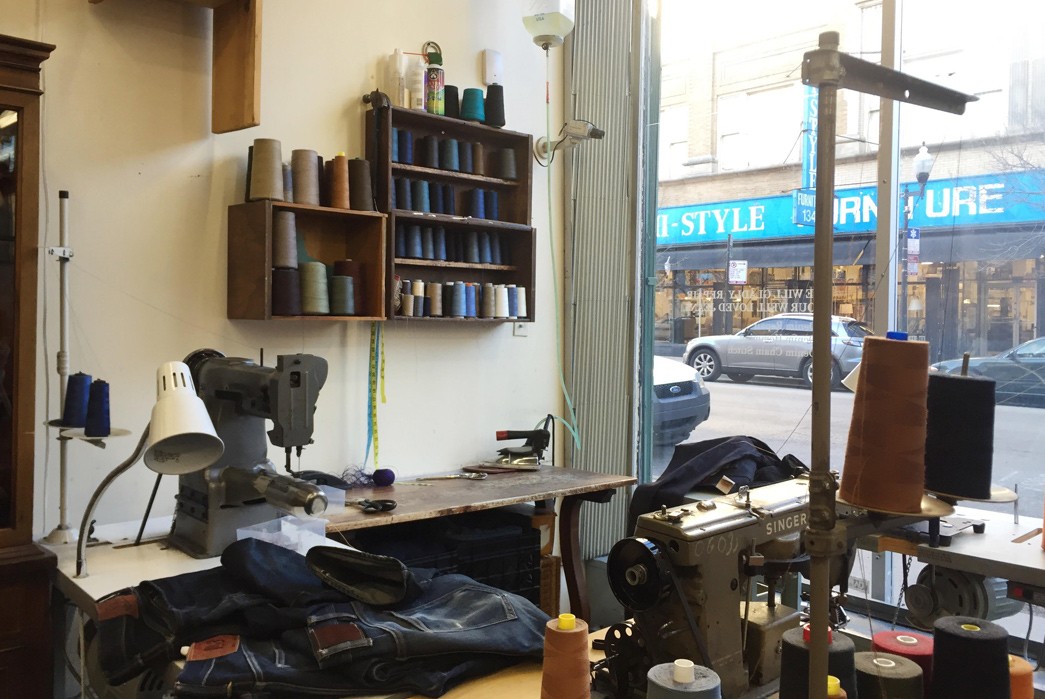
Throughout his career, Cho has prioritized filling holes in whatever market he’s working in, with unique pieces that aren’t readily available. Which means that, in the late ’90s, when a DJ friend came back from playing the raucous club scene in Ibiza, Spain, telling tales of pant legs reaching thirty inches or more in circumference, Cho jumped on the opportunity.
That’s right folks, Luke Cho, purveyor of raw denim and work boots, brought phat pants to America.
Drawing inspiration from British label Joe Bloggs, Cho flew to LA and searched around for a factory to produce the outlandish pants. After receiving lots of hell-no-thank-you’s, Cho connected with a young man, Q, whose family had a factory. They took on the project as private label, producing versions in denim and twelve different colors.
For reasons that perhaps we will never, ever, ever understand, the style took off as rave culture struck a chord with the mainstream. Brands like JNCO, Kikwear and Gypsies & Thieves jumped on the bandwagon, producing phat pants with leg openings up to sixty inches.
While his brainchild was wreaking havoc on the eyes of parents and innocent bystanders across America, Untitled expanded to four storefronts around Chicago. With a team of buyers focused on Untitled, Cho was able to revisit his ever-present interest in manufacturing.
He started another brand, Syndrome, in 2001 with Untitled’s manager Adam Rajcevich, who went on to join Threadless when they (spoiler alert) eventually bought Syndrome. The vertically integrated brand, with its focus on graphic tees and refined, detail-oriented streetwear, surged in the US and approached cult status in Japan.
Syndrome was an early adopter of water-based screenprinting, which produces a soft, long-lasting print that sits in, rather than on, fabric. This technological advance helped fuel the elevation of graphic tees and sweatshirts from workout gear to fashion staple.
Cho and Rajcevich enlisted young design darlings like Cody Hudson–whose work can now be found on brands such as Nike, Stussy and Volkswagen—and Creative Rescue Organization’s Ray Noland, who went on to use his design savvy to create renowned political commentary, including the first grassroots “Obama art.”
Syndrome also incorporated soft colors, polka dots and floral patterns that wouldn’t look out of place at current trade shows. Some of the brand’s Japanese buyers enlisted Syndrome for private label manufacturing. Cho and Rajcevich produced shirts, bags, jackets and pants for the in-house labels of stores like Beams, Isetan and Journal Standard.
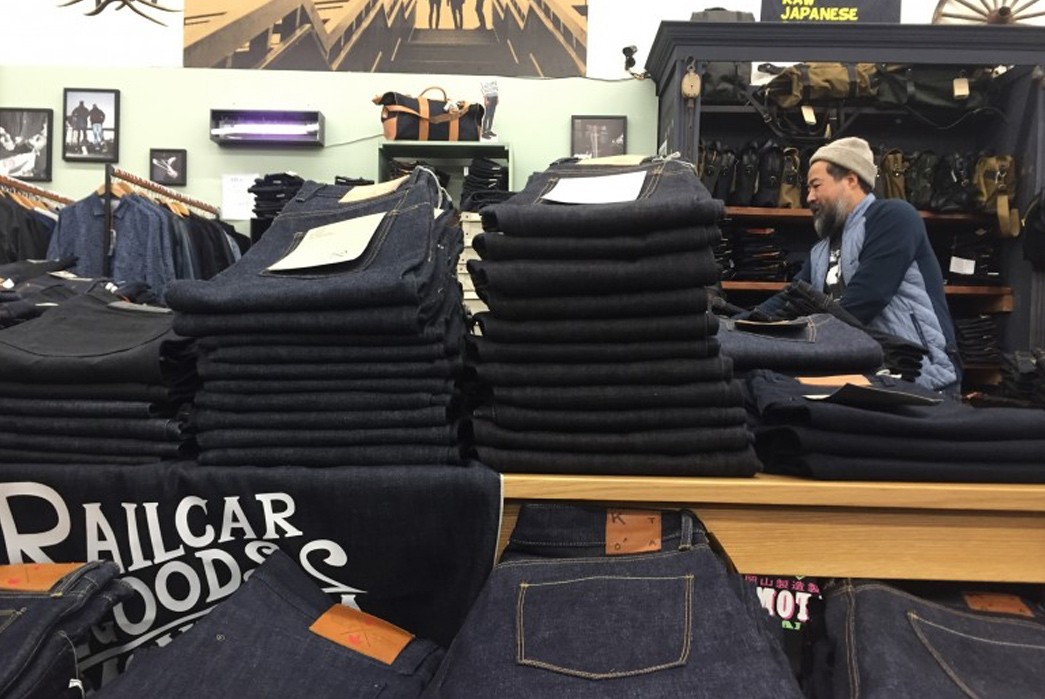
You, dear reader, may be noticing a recurring theme of Cho catching or even creating the front edge of trends. And simply put, Cho is a fashion expert. His perspective is informed by decades of work on a global scale–particularly with the catch-em-if-you-can Japanese market–layered with knowledge of the whole spectrum from design, through manufacture to retail.
But talk to anyone who worked in the late 2000s and chances are the Recession will come up as a harbinger of change. It helped spark some brands and killed others. The downturn forced the closure and sale of the Untitled stores and Syndrome (purchased by Threadless) around 2008.
Which leads us back up to Cho’s current project.
Mildblend opened its doors in 2011, and the space caters to a variety of style-seekers with a American/Japanese inflection. The store could be seen as a capstone project for Cho, bringing things back around to his personal style.
Cho ascribes to the adage “fashions fade; style is eternal” (widely attributed to Yves Saint Laurent), and he’s always decked out in brands he champions in the store. And it’s embodied in the store name, too: Mildblend is a simple, straightforward combination of Mild and Blend. In Luke’s words, “to us means timeless classic style that is not overwhelming or trend setting and tend to get better with age.”
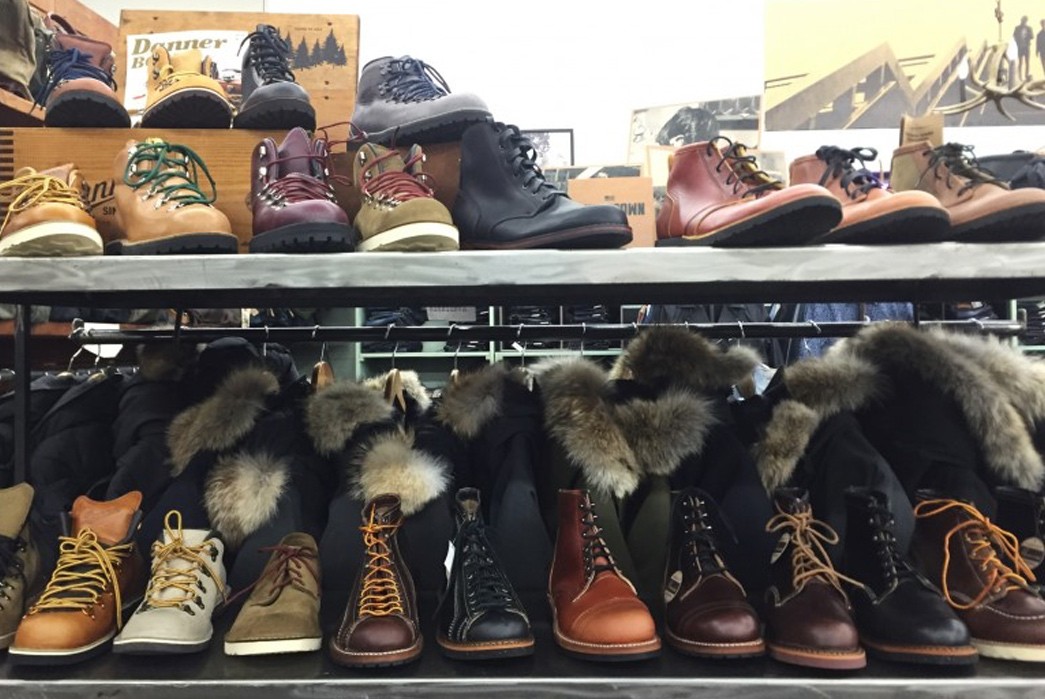
Depending on who’s walking through Mildblend’s doors, all the racks may look totally the same or dizzyingly different. Is it a teeming sea of navy blue, leather and waxed canvas or a schooling in the encyclopedic nuances of materials and manufacturing techniques?
Well, kind of both.
Cho addresses this with a small, well-trained team that knows everything about everything in the store, and reflects the diversity of Mildblend customers. The goal is for every visitor, whether they drop a whole paycheck or buy nothing at all, to leave the store with an understanding of the products, their value and their story.
In his eyes, value comes before branding, before trendiness or popularity. And it depends on the person. “It doesn’t mean you’re paying less. It means you’re getting what you pay for.” In his words, “You’re buying the denim for the future, that’s yet unseen.”
As the sole buyer for Mildblend, Cho makes a point of finding and showcasing young, under-the-radar brands. He flexes his manufacturing knowledge by providing feedback on construction details to brands large and small, and will pass on a product until, say, a rivet is more securely attached or a chronically bunched layer is smoothed out.
Cho is loyal to the brands he stocks and always seems to have a new collaboration in the works, having recently worked with 3sixteen, Naked & Famous, Railcar Fine Goods, Winter Session, Rogue Territory, Motomaro, Oak Street Bootmakers, Freenote Cloth… you get the idea.
So, what’s next for Luke?
For once, Cho seems content where he is, helping to shepherd brands into the spotlight, building strong relationships with customers as their denim caretaker and attracting a range of shoppers from curious raw-newbies to picky connoisseurs. He’s also proud to report that his daughter is the top salesperson at Nudie’s New York Bowery location.
Next time you find yourself in Chicago, be sure to stop by Mildblend and say hello to Luke Cho. And come with every question you’ve ever wanted to ask about menswear. Chances are, he’ll have a story for you.
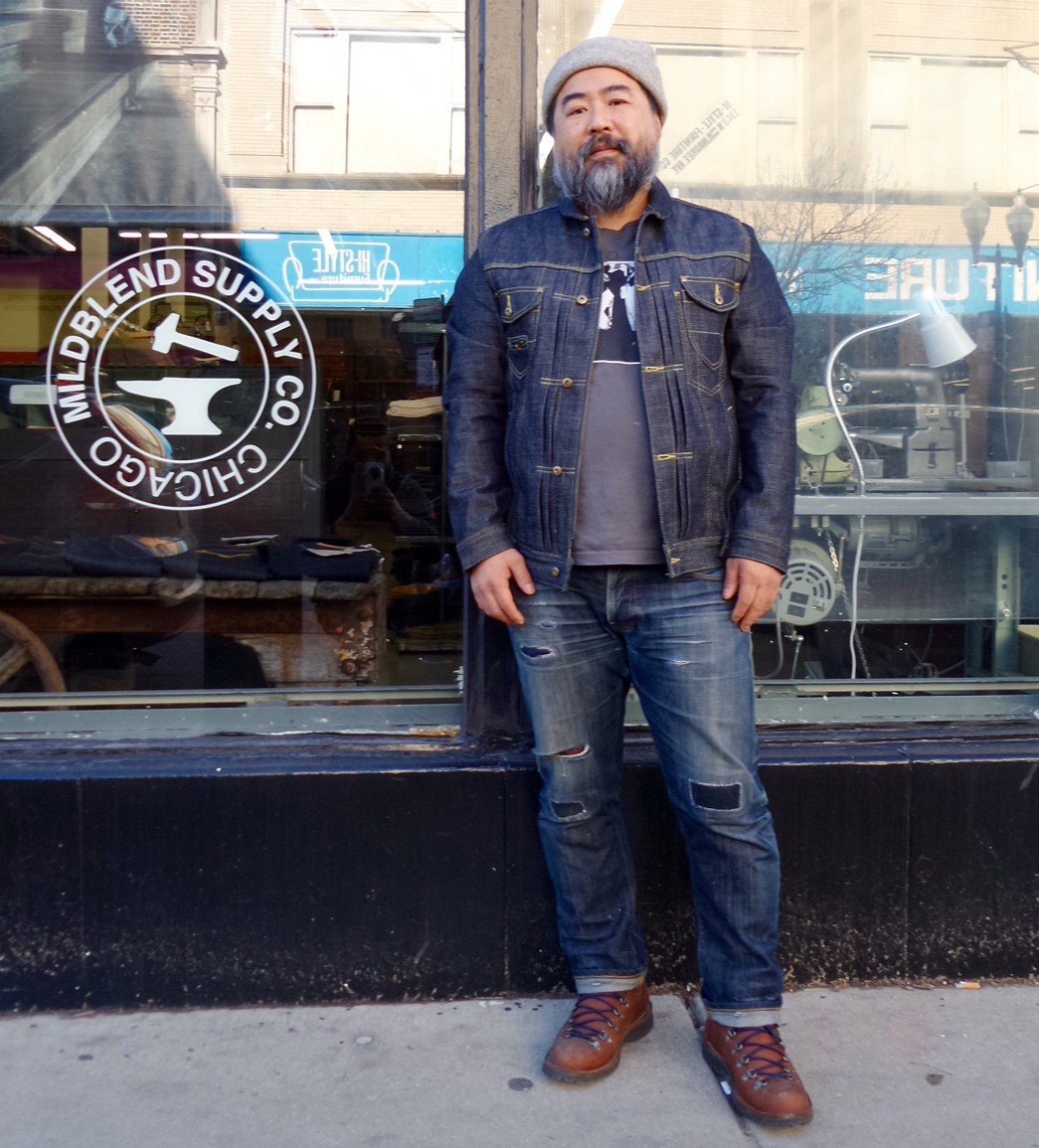
To learn more about Mildblend Supply Co., visit their website or their retail store at 1342 N Milwaukee Ave. in Chicago.

